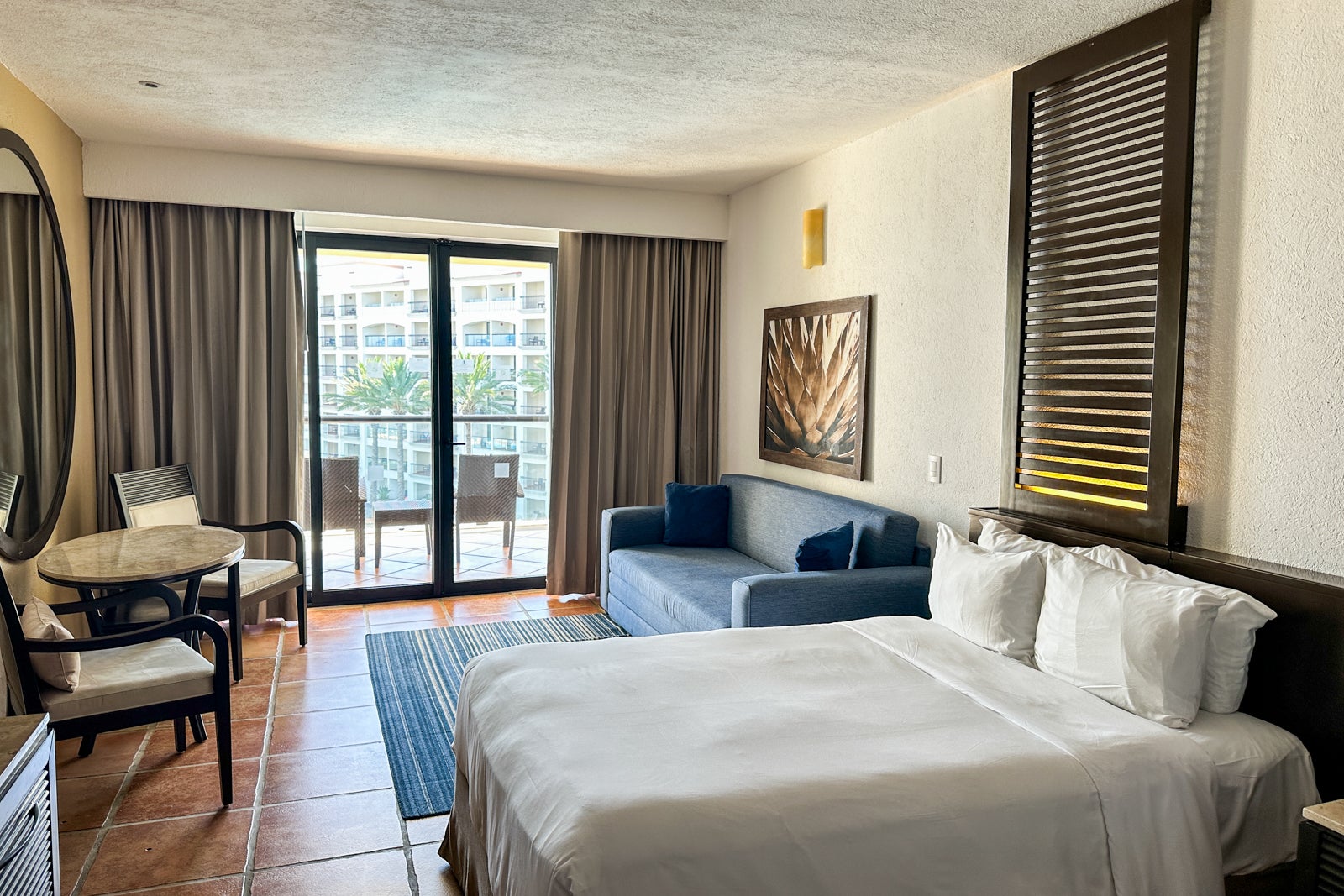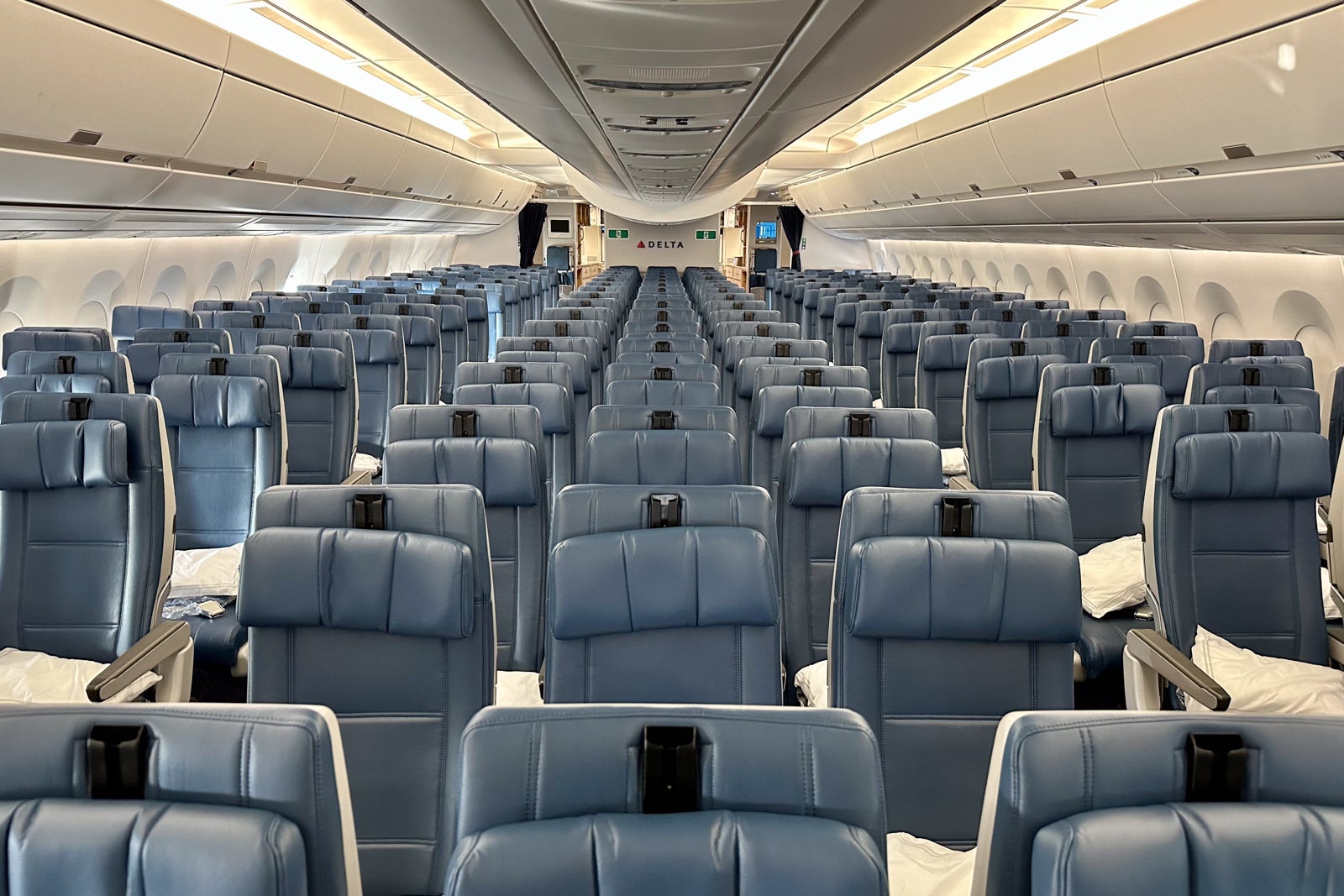When you book a flight or reserve a hotel, you expect the airline or hotel to provide the services you booked. But sometimes, this doesn’t happen.
Perhaps the airline changes its schedule to move your departure or arrival to a time that doesn’t work for you. Or worse, the airline cancels the route you booked or ceases operating entirely. In these cases, the airline will usually move you to other flights or refund your money.
But what if you really needed the route and schedule you originally booked? If there’s no good alternate on your carrier, you may need to get a refund and rebook with a competitor. However, on some routes, there may be no other options, or the other options may cost significantly more when you rebook.
And it’s not just flights. Hotels sometimes close or switch to a different loyalty program. Sometimes, you’ll be offered a stay for the same or a discounted cost. But in many cases, you’ll just be refunded your deposit and left to rebook. Unfortunately, prices and availability may both be worse by the time you make a new reservation.
Travel providers’ responsibilities
We’ve written stories about airline passenger rights during travel meltdowns, but here’s a look at what to expect if your travel provider changes or cancels your reservation weeks or months before your trip.
Hotels

Hotel bookings are most often affected when a property exits a loyalty program, closes or doesn’t open (or reopen) as expected. When a hotel doesn’t open as expected or ceases operations, all customers with existing bookings will usually be contacted and given a refund or an offer for alternate lodging. When a hotel exits a loyalty program, paid reservations will usually be honored. Sometimes, award reservations will also be honored, but you usually won’t get any elite benefits or earnings you might have expected when booking.
If a hotel can’t accommodate you at the last minute, you’ll be walked from the hotel and usually offered another place to stay. Let’s look at what some major hotel loyalty programs will do if the change or cancellation occurs well before your stay.
Marriott Bonvoy has an Ultimate Reservation Guarantee, but this only covers arrivals at a participating property that is open and operational but can’t accommodate you. If a property leaves the program, the Marriott Bonvoy terms and conditions state:
3.2.k. Exit of Participating Property. If a Participating Property exits the Loyalty Program for any reason after a Member makes an Award Redemption Stay reservation but before the Member’s stay, the Company will use reasonable efforts to have such former Participating Property honor the reservation or assist in arranging equivalent accommodations nearby; however, the Company cannot guarantee that any Awards, upgrades or any other benefits a Member may earn under the Loyalty Program will be honored.
The Hilton Honors terms and conditions don’t discuss a reservation guarantee and only state the following about what happens when a property leaves the program:
If a hotel ceases to be a hotel within the Hilton Portfolio, all stays subsequent to such date will not be eligible to earn Hilton Honors Points regardless of when the reservation was made.
Meanwhile, the World of Hyatt terms and conditions state the following (where a Point Property is defined as a participating property in an eligible Hyatt brand):
In the event that a property ceases to operate as a Point Property, points will not be awarded for nights stayed at that property following such cessation and points may not be redeemed for awards at such property after the termination date, even if the applicable reservation was made prior to the termination date.
Finally, the terms of the IHG One Rewards program don’t explicitly address this scenario, but the terms do reserve the right for IHG to alter its program at any time, a similar stipulation found with other brands.
So, with most hotel loyalty programs, you aren’t guaranteed much when a property exits a loyalty program, ceases operations or doesn’t open as expected. However, you may be offered a better resolution, especially if you contact the loyalty program and ask.
Airlines

Like hotels, you agree to set conditions when booking a flight. You’ll likely face more favorable treatment if the change or cancellation happens shortly before your flight, but if it doesn’t, here’s what you can expect from several popular airlines.
Delta Air Lines’ cancel or refund your flight page states:
If there is a flight cancellation or significant delay (>120 minutes), you will be rebooked on an alternative flight, or your ticket will be converted to an eCredit for future travel…If we have rebooked you on a new flight or your original flight was significantly delayed (>120 minutes) and you would like to cancel and request a refund, please do so within My Trips.
If you booked through American Airlines, the airline’s frequently asked questions page says you can request a refund to your original payment form if there is a schedule change of more than four hours (or a schedule change of 90 minutes or more within 72 hours of your scheduled departure).
The page is silent on the airline’s policies regarding rebooking passengers, but in practice, American Airlines usually rebooks passengers automatically as schedule changes occur in the weeks and months before a flight. However, if the system is unable to automatically rebook you, you’ll often need to call American Airlines or wait for a call from a representative. If American Airlines suspends a route, you’ll often find the only options you’ll get are to take the first flight once the route resumes or accept a refund.
Finally, United Airlines’ schedule change policies website states:
If your flight’s schedule changes by more than 30 minutes, you can book another United or United Express® flight for free. Your new flight must leave from the same airport within 24 hours of your original flight time…If the scheduled departure or arrival times on your flight change significantly or we can’t seat you in the same cabin, you can request a refund.
Know, though, that you can only work directly with most airlines to get a schedule change or refund if you book directly with them. If you book through an online travel agency, you must work with the OTA to change your flight or get a refund.
Related: What to do when an airline changes your flight
What about mistake rates?

Mistake rates fall into a category of their own. Usually, mistake fares or error fares occur when an airline mistakenly prices some fares significantly lower than usual, but mistake rates can also occur when hotel rooms are sold for significantly less than intended.
In 2011, the Department of Transportation started requiring airlines to honor mistake fares as part of its prohibition on post-purchase airfare increases. But in 2015, the Department of Transportation established a new interim policy allowing airlines to cancel “mistaken fares” as long as they do the following:
- Demonstrate the fare was mistaken
- Reimburse all consumers who purchased a mistaken fare ticket for out-of-pocket expenses made in reliance upon the ticket purchase
- Refund the purchase price of the ticket
Interestingly, this interim policy is still in place. Unfortunately, there are neither guidelines on what constitutes a mistake fare nor a time frame after purchase during which airlines must decide to cancel these fares. As such, if you get a very good deal on a flight, know that the airline could inform you weeks or months later that it canceled your flight because it determined you booked a mistake fare.
Unfortunately for travelers, there’s even less protection if a hotel cancels a stay sold for less than intended. The terms and conditions for IHG One Rewards even state,” In the event of an erroneously published Reward Night point price, IHG One Rewards reserves the right to cancel the booking and refund the points. Members will be notified in the event that this occurs.”
Related: Uh oh: United updates its policy on mistake fares, gaming the system
How I’d like to see travel providers respond

In a perfect world, we’d see traveler-friendly, common-sense treatment from airlines and hotels when they cannot provide the service a customer has booked.
For example, when the Selina Miami River hotel didn’t open as scheduled, I got the following message from the hotel:
Unfortunately, Selina Miami will not be able to host your stay…On behalf of Selina, we extend our most sincere apologies. But, is not all bad news, as we have an option booked for your stay to be pleasant…The cost of your reservation will not be affected and will stay the same. We would also like to offer you a free upgrade and breakfast included next time you visit our Selina Miami (when it is operating).
When IHG’s Atwell Suites Miami Brickell didn’t open as scheduled, I wasn’t informed ahead of time, but I was accommodated at a sister hotel that shared the same lobby.
Ideally, every hotel and loyalty program would handle a hotel’s closure or failure to open as scheduled by offering to accommodate guests. However, this doesn’t always happen.
In the case of properties that leave a loyalty program, travelers would ideally be given the option to cancel their stay, switch to a nearby property at the same cost (ideally in the same program) or keep their existing reservation at the property after it leaves the program (even if this means no elite status perks or earnings). Some travelers may have luck contacting the loyalty program and asking to switch their stay to a nearby property at the same rate. However, this often isn’t an option unless you specifically request it.
Most airlines will try to accommodate you on other flights they operate if they cancel your flight or significantly change the schedule so it no longer works for you. Sometimes, they’ll even accommodate you on other airlines. They’ll almost always offer a refund if they cancel your flight and none of their other flights work for you.
That said, your options may be limited, especially if you have a tight schedule or are traveling to or from a destination with limited flights. In this case, I’d like to see more airlines use common sense techniques to help travelers reach their intended destination around the same time they’d originally booked. Examples include opening up award availability, allowing legs to be added or dropped from the itinerary and letting the passenger change the origin or destination.
Elite status can also help here, as a customer service agent may have greater flexibility to support someone who’s flown 100,000 miles on the airline or spent 60 nights with a given hotel program over the last year.
This is also where simple persistence may pay off.
For example, TPG’s Nick Ewen recently had a significant schedule change on an Iberia-operated award flight booked using Avios. When he attempted to switch his itinerary to a nearby airport, it took three separate phone calls over the span of a week — each of which lasted well over an hour — before finally finding an agent willing to make the change. However, he was forced to accept a downgrade from business to economy on the short connecting flight for the privilege, but this was a small price to pay for a much better routing.
Bottom line
If you travel frequently and book trips at least a few months in advance, you’ve likely experienced airline schedule changes and perhaps a hotel that has left your loyalty program of choice. Here are some tips to help you deal with changes and cancellations:
- Don’t accept a schedule change from an airline unless the new flights are what you want. You may be unable to make further changes or cancel and get a refund if you’ve already accepted the change.
- Call or email the travel provider’s customer service as needed, especially if you hold elite status. You may be able to get put on different flights or otherwise accommodated if you ask.
- Keep an eye on your reservations so you don’t accidentally miss a change or cancellation.
- Book directly to avoid having to deal with an OTA in the case of a schedule change or cancellation.
It’s also a good idea to book flights and hotels you can cancel for little or no fee until shortly before your trip. Doing so allows you to remain flexible and adjust your travel if a flight or hotel needs to be canceled. For example, if you redeemed American Airlines miles to fly somewhere primarily to stay at a new Marriott hotel but then you learn the hotel isn’t opening on time, you can cancel your award flights, redeposit the miles without charge and then rebook for a later time once the hotel opens.


